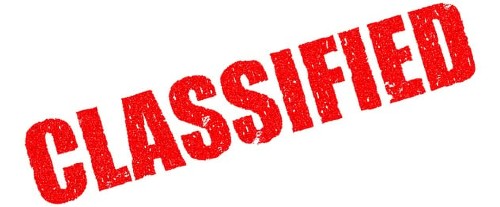 Israeli “security fence” separating Israel proper from the occupied West Bank. Photo by Justin McIntosh. Creative Commons Attribution 2.0 Generic license.
Israeli “security fence” separating Israel proper from the occupied West Bank. Photo by Justin McIntosh. Creative Commons Attribution 2.0 Generic license.
On July 23, the Israeli Knesset voted 71 to 13 in favor of a “non-binding” motion to “annex” the West Bank, where Palestinian Arabs have lived under Israeli military occupation since 1967.
Naturally, Knesset speaker Amir Ohana disagrees with that plain statement of fact. Channeling Adolf Hitler’s ethno-nationalist claims on Czechoslovakia’s Sudetenland, Austria, etc., Ohana proclaimed that “Jews cannot be the ‘occupier’ of a land that for 3,000 years has been called Judea.”
Will Benjamin Netanyahu heed the “non-binding” will of the Knesset?
If so, what will the effects, both internationally and for the area’s 2.1 million Arab inhabitants, look like?
Internationally, it’s unlikely that most other regimes will recognize the annexation. Of the UN’s member states, 147 recognize the state of Palestine as the “legitimate” ruling entity in the West Bank. The UN itself recognizes Palestine as an observer state, and it’s a member state of Interpol and the International Criminal Court.
All of that tracks with Israel’s own agreement, as a condition of its UN membership, to the borders set in 1947’s UN Resolution 181. While it’s never actually kept to that agreement and has always occupied territory outside those borders, those borders have never changed where international law is concerned.
UN-backed military intervention to liberate Palestine from Israeli occupation seems unlikely, but some regimes would likely levy sanctions on Israel over the matter.
And then there are those 2.1 million people.
For nearly 60 years, they’ve been treated as rightsless serfs in an apartheid system. They’re ruled by the Israeli regime, with the “Palestinian Authority” — which hasn’t held an election in 19 years — serving as a sop to “self-rule.” Their property is subject to confiscation to provide Lebensraum for Israeli “settlers.” Some of them are, occasionally, allowed to cross into Israel to do menial labor for their Israeli masters.
But if Israel annexed the West Bank, it seems to follow that its inhabitants would all instantly become Israeli citizens, with full freedom to travel at will between (for example) Ramallah and Tel Aviv.
Newly minted Israeli citizens of Arab ethnicity probably wouldn’t continue to tolerate segregated facilities like “Jews Only” roads.
They’d presumably demand full and equal access to Israel’s courts to contest property thefts based on ethnic differences.
And, of course, they’d presumably enjoy voting rights and representation in the Knesset.
I have to suspect Ohana doesn’t see things quite that way.
With the annexation of the West Bank, Israel’s population would go from 9.4 million to 11.5 million — with the the Arab percentage of its electorate more than doubling.
That doesn’t sound like the kind of policy an ethno-state dedicated entirely to the supremacy of one group (Jews) would implement vis a vis another group (Arabs).
What’s the missing piece of the puzzle?
What comes after “annexation?”
Ethnic cleansing, up to and including genocide, to get rid of those pesky Arabs and their rights.
Accompanied, of course, by simultaneous affirmations and denials of that goal, and by screeches that anyone opposed to the idea is an “antisemite.”
Ethno-nationalism is a cancer, whether its perpetrators are Nazis or Zionists.
Thomas L. Knapp (X: @thomaslknapp | Bluesky: @knappster.bsky.social | Mastodon: @knappster) is director and senior news analyst at the William Lloyd Garrison Center for Libertarian Advocacy Journalism (thegarrisoncenter.org). He lives and works in north central Florida.
PUBLICATION/CITATION HISTORY


